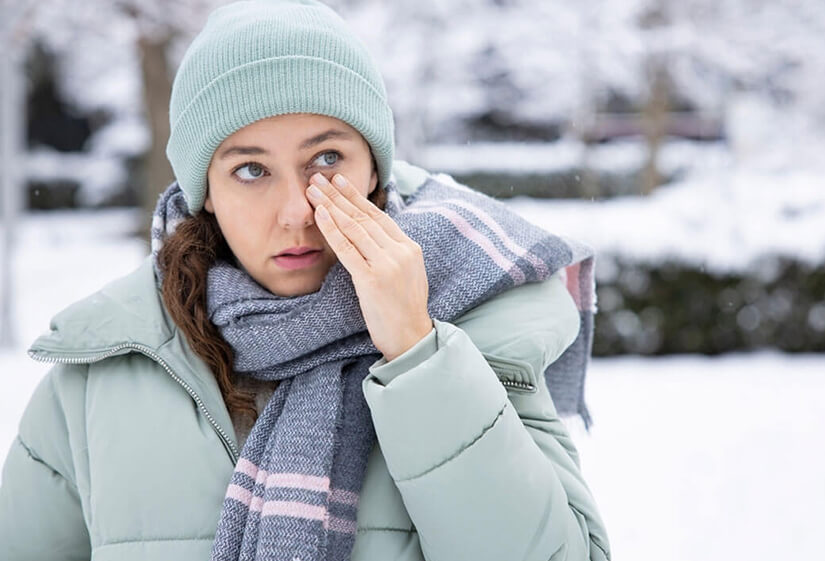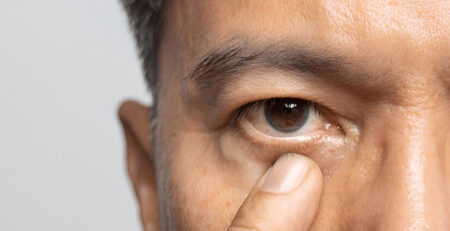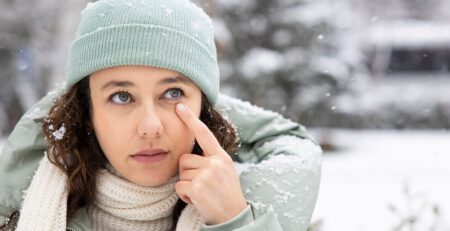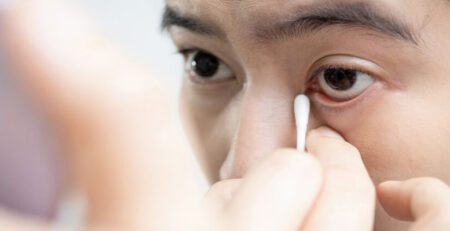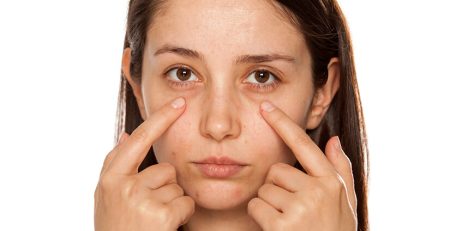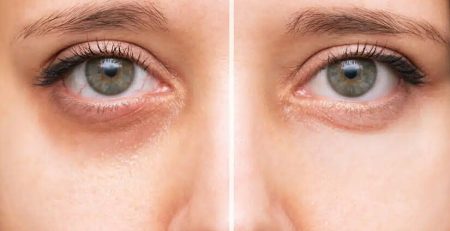8 Common Eye Problems in the Winter
Winter is here, and while the chilly breeze and warm cups of tea make the season special, it can also bring challenges for your eyes. Many people overlook how harsh winter conditions can lead to common eye problems, often mistaking them as minor inconveniences. But did you know that ignoring these issues can worsen your eye health over time?
Here’s an in-depth look at what your eyes might face this winter and how you can protect them.
1- Dry Eyes: A Silent Winter Epidemic
The drop in temperature and low humidity levels during winter can strip your eyes of their natural moisture. This condition, known as dry eyes, is one of the most common eye problems people face in the colder months. You might feel a constant burning sensation, redness, or the need to blink more often. These symptoms can worsen indoors due to the use of heaters, which further dry the air.
Quick Tip: Use a humidifier at home and stay hydrated. Artificial tears or lubricating eye drops can also be your best friend during this season.
2- Sensitivity to Light
Winter’s bright sunlight reflecting off snow or shiny surfaces can lead to photokeratitis, also known as “snow blindness.” This painful condition can feel like having sand in your eyes and is caused by excessive UV exposure. It might surprise you, but winter UV rays can be just as harmful as summer ones.
Preventive Measure: Always wear sunglasses with UV protection, even on overcast winter days. Your eyes will thank you!
3- Watery Eyes in Cold Winds
Ironically, while some people struggle with dry eyes, others experience excessively watery eyes due to cold winds. This happens because your tear ducts go into overdrive to protect your eyes from the dryness caused by the harsh weather.
Though watery eyes might seem harmless, they can interfere with your daily activities and even lead to irritation. It’s essential to address this issue before it impacts your overall eye health.
4- Increased Risk of Eye Infections
Winter is also flu season, and viruses and bacteria thrive in crowded, warm indoor spaces. This increases the risk of conjunctivitis (pink eye) and other eye infections. If you notice redness, discharge, or discomfort, don’t brush it off.
Pro Tip: Wash your hands frequently, avoid touching your face, and keep personal items like towels and makeup brushes clean.
5- Vision Problems Due to Screen Time
As outdoor activities reduce during winter, many people find themselves glued to their screens—be it for work, entertainment, or connecting with loved ones. Prolonged screen time can lead to digital eye strain, causing symptoms like blurry vision, headaches, and difficulty focusing.
Solution: Follow the 20-20-20 rule: every 20 minutes, look at something 20 feet away for at least 20 seconds. This simple habit can significantly reduce strain on your eyes.
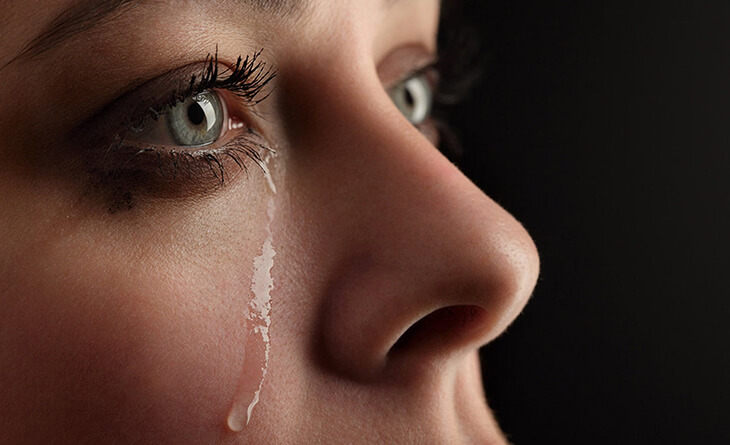
6- Risk of Seasonal Allergies
Winter allergies caused by dust mites or indoor moulds can also impact your eyes. Symptoms like itching, redness, and puffiness can disrupt your comfort and make the season less enjoyable.
To combat winter allergies, keep your surroundings clean and use air purifiers if needed. Over-the-counter antihistamine eye drops can also provide relief, but consult an Eye Doctor in Delhi for the best advice.
7- Corneal Freezing in Extreme Cold
For those venturing into extremely cold environments, frostbite isn’t the only concern—your cornea can actually freeze if exposed to severe cold winds without protection. Though rare, it’s a serious winter eye problem that highlights the importance of proper eyewear in such conditions.
Protective Step: Wear goggles or windproof eyewear when in extreme cold or high-altitude areas.
8- Flare-Up of Pre-Existing Eye Conditions
Winter can exacerbate pre-existing eye conditions such as glaucoma, cataracts, and age-related macular degeneration. The reduced blood flow due to cold weather can affect the eyes, potentially worsening symptoms like blurred vision, eye pain, or light halos.
Individuals with chronic eye conditions often find that colder months bring about discomfort or increased sensitivity. For example, those with dry eye syndrome may notice more frequent flare-ups due to the lack of moisture in the air.
Retinal vascular occlusions are also more commonly seen in winters.
Action Plan: If you have a pre-existing eye condition, winter is the ideal time to schedule a check-up with an Eye Doctor in Delhi to ensure your treatment plan is optimized for the season. Consistently use prescribed medications or drops to avoid complications.
How to Protect Your Eyes This Winter?
Winter eye problems are not only preventable but also manageable with a little effort. Here’s a quick checklist for keeping your eyes healthy this season:
- Stay hydrated and avoid rubbing your eyes.
- Use artificial tears or lubricating drops for dry eyes.
- Wear UV-protective sunglasses and a wide-brimmed hat outdoors.
- Follow good hygiene practices to avoid infections.
- Take breaks from screens and practice the 20-20-20 rule.
- Consult an Eye Doctor in Delhi if you experience persistent or severe symptoms.
A Clear Solution for Winter Eye Problems
Don’t let winter get the best of your eyes. Whether it’s dry eyes, sensitivity to light, or any other discomfort, professional care is just a step away. Dr. Anisha Gupta, a renowned eye specialist in New Delhi, offers comprehensive treatments tailored to address your specific needs. With her expertise, you can enjoy the winter season without compromising on your vision.
Schedule your consultation today to protect your eyes and maintain crystal-clear vision throughout the season!

